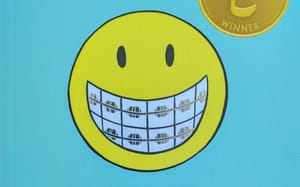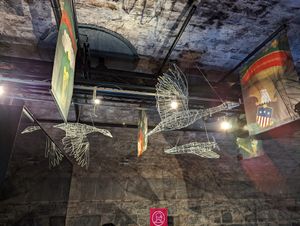Recognize the value of experience, aptitude and attitude
I was a college dropout. For several years, I worked in temporary jobs, or, well, sometimes, I did not. This included a spell of over eight months working on a production line in Continental Gummiwerke in Korbach, Germany, as one of a group of Irish gastarbeiters. I certainly read a lot, quite often in the library at University College Dublin, looking out over the lake to Dublin Bay, or in public libraries around the city, benefiting from and growing to appreciate that vital social infrastructure (although I would not have used that expression back then). Dublin City Council (then known as Dublin Corporation, the local authority which included Dublin City public libraries) extended me a lifeline, as recruitment was based on the results of one's closing exams in secondary (aka high) school. And so I began a career in libraries, as a library assistant in the Dublin city system. It was hierarchical and rigid, as you might expect from a local government bureaucracy of the 1980s. However, that is not the experience that has mostly stayed with me. I remember those years affectionately, especially valuing the collegial working and social atmosphere with peers.
I was particularly pleased to work for a while in the imposing Rathmines branch, with which I was very familiar as a child. I grew up several miles from there, in a suburb built in the 1960s. Once I had read all the books in our smaller more local branch, I would take the bus to Rathmines. For me, Rathmines was an introduction to institutional gravity and civic opportunity. I remember the impact on a young child of the granite steps worn away by footsteps over the years, the brass railings, the William Morris glass stained window, the linoleum, the sense of a building rooted in its environment and not merely laid down on top of it. It was a touching experience to go back as a staff member, and to see the hidden working interiors of the building, the corridors and basement of additional collections, the comfortably shabby staff room.
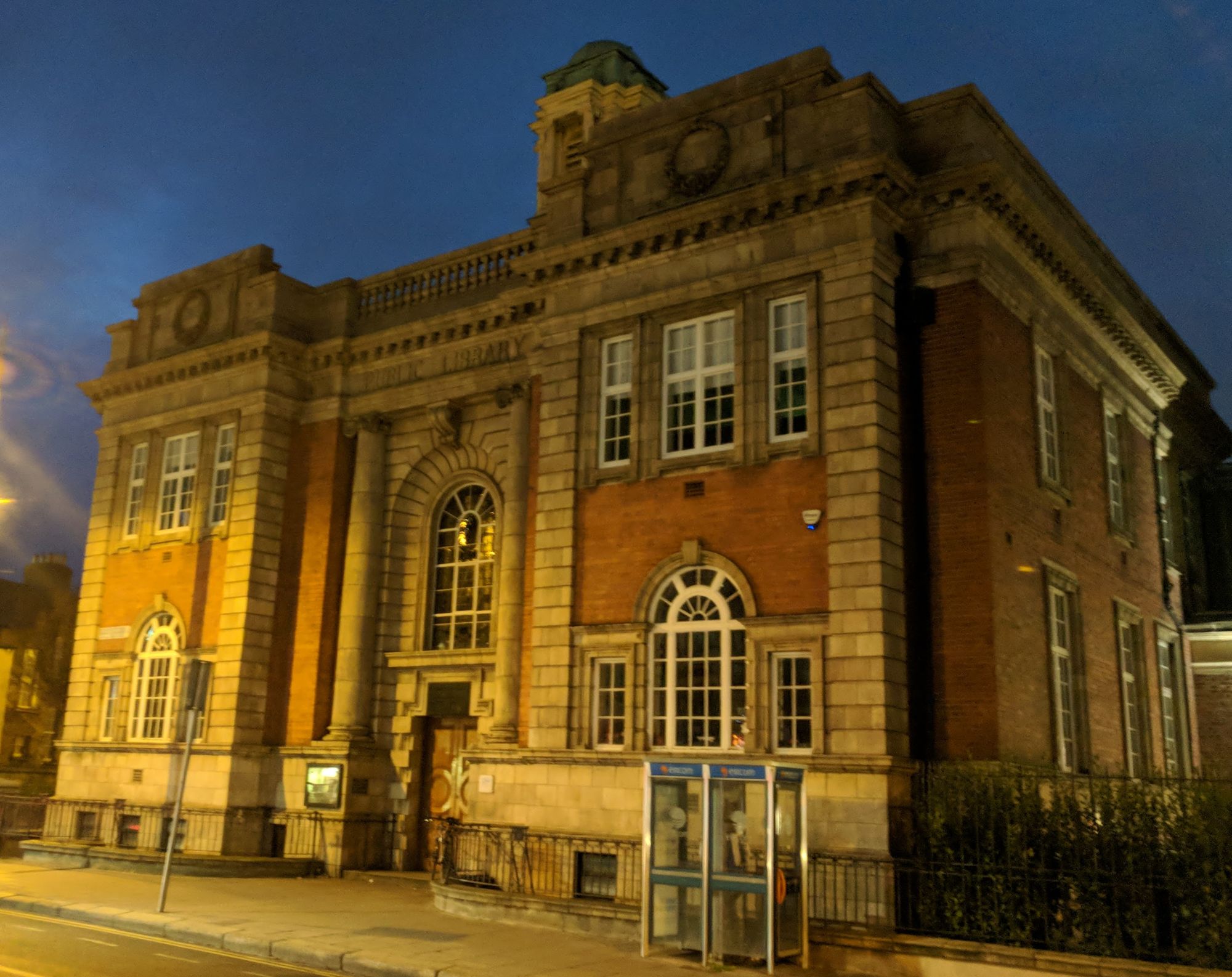
I worked in several branches during those years, and I spent a year on 'relief' work, where we processed books in the morning and then were sent out to replace staff on leave on the afternoon or evening shifts. I enjoyed cycling to parts of the city I did not know. Occasionally, we would go to the cinema in the afternoon if we were on evening shifts. I remember seeing David Lynch's Dune and Once Upon a Time in America in one marathon afternoon session.
For me, Rathmines was an introduction to institutional gravity and civic opportunity. I remember the impact on a young child of the granite steps worn away by footsteps over the years, the brass railings, the William Morris glass stained window, the linoleum, the sense of a building rooted in its environment and not merely laid down on top of it.
I also came to respect the senior library assistants who ran operations in many of these libraries. Many were expert in so many ways, especially as they got to know not only the books in the lives of their readers, but also the readers in the lives of their books. Later, in library school, I found the expression 'paraprofessional' jarring. On moving to the US, I had a similar reaction to the strong distinction between 'staff' (a generic word, after all) and 'librarian' (see the discussion of 'staff' morale here). I do think the MLS is important. There is specific expertise of importance, and some indeed that is transferable to other domains. I also think it is important to understand and appreciate the history and values of the profession. However, it is also important to acknowledge that libraries depend on a variety of skills and capacities to succeed, and we should respect all of those contributions.
Do not be discouraged
While working, I took some time off to complete my undergraduate degree (in English Language & Literature). This was something of a challenge, as things weren't as flexible then. My thoughts then turned to the longer term. Dublin Corporation had a scheme under which it sent selected qualified library assistants to library school in University College Dublin (UCD), paying tuition and salary. I applied for one of the Dublin Corporation places. However, they decided that I was not librarian material and I was not selected. Only temporarily discouraged, and convinced I wanted to be a librarian, I decided to take a career break, borrowed some money, and headed off to UCD. I knew what I wanted to do. I haven't looked back.
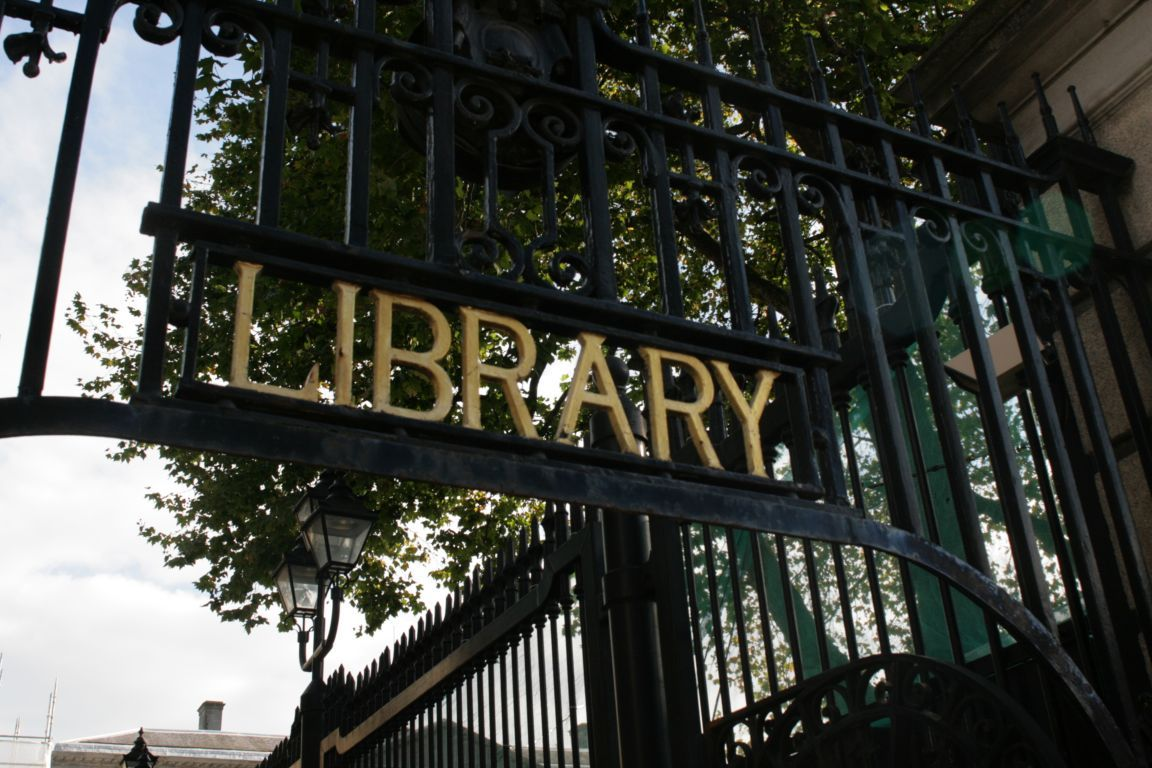
You always have more to learn
We are doubly immigrant (my wife, Ann Lennon, is also from Dublin and also a librarian). We moved from Ireland to the UK as part of the last wave of economic emigration before the economic boom of the 1990s ("the Celtic Tiger"), at a time when public service jobs in Ireland were difficult to find. Our children were born in Bristol (the Portland of the UK, I read recently), and we loved living for a while in Camberwell, in South East London. Years later, we moved from the UK to the US, arriving just a couple of months before 9/11. Ireland, the UK and the US certainly share a lot, not least a language (notwithstanding George Bernard Shaw's purported remark about England and the US being countries divided by a common language). However, they are also very different. Think of the role of government or public spending, of how race influences social and cultural contexts, of attitudes to flags and emblems and what they signify, or of the role and character of religious belief. And of course, the experience of moving as an Irish person to England in the late eighties is very different than moving later as an Irish person to the US. This movement between countries has made us very aware of multiple identities, of power relations embedded in language and accent, and of the subtle, and often less than subtle, influence of national stereotypes, both good and bad.
This has meant that I am used to being at an angle to things, I have learned to try never to take anything for granted, and I understand only too well from experience that I do not always have perfect or even very good judgement or intuition. I understand that my background affects how I behave or how I think and importantly how I can seem to others. I always have more to learn, whatever the situation, and it is dangerous to rush to quick judgement.
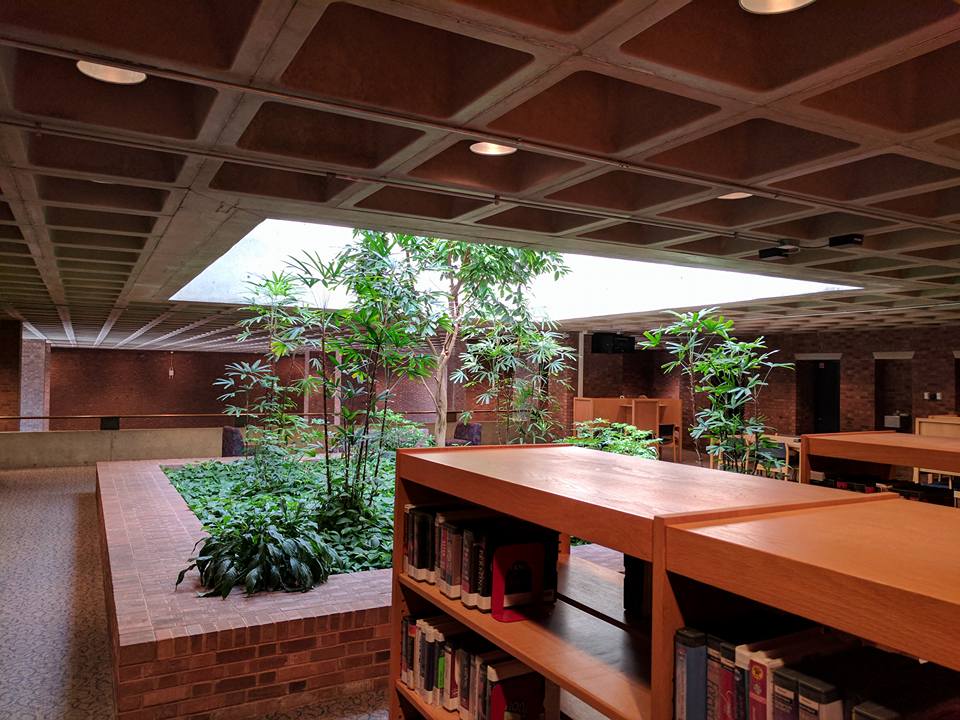
Work with people who can teach you things
I have been extraordinarily lucky in my career. In Jisc and OCLC I have worked for service organizations that, in very different ways, allow libraries to collaboratively scale their capacities and impact. Jisc is a national agency which provides networking, infrastructure, licensing and advisory services to UK post-secondary educational institutions. OCLC provides shared infrastructure and data services to thousands of libraries around the world. I have managed two very influential library research and policy units, UKOLN (at the University of Bath) and OCLC Research, in the UK and US respectively. The work that my colleagues have done in these units has had influential and far-reaching impact. I joke that my modest success is down to the fact that I have always worked with people who are smarter than I am. But I am not really joking - I have always worked with smart, dedicated people, ambitious to make a difference. They have made me better.
This has meant that I am used to being at an angle to things, I have learned to try never to take anything for granted, and I understand only too well from experience that I do not always have perfect or even very good judgement or intuition.
Be curious. Visit.
Talking to people working in libraries and visiting different types of libraries enriches your sense of what is important and again improves judgement and intuition.
Larger conferences play an important role in our community. However, I much prefer smaller events, state or regional meetings, or indeed visits to individual libraries. When people are in situ, and are comfortable talking about experiences and challenges, one can learn and appreciate so much.
I also like to visit libraries as a tourist, to look around, to see what is going on and to watch the people using them. Whenever we travel, we visit libraries (our children had seen all the national libraries in the UK and Ireland at a very young age). Whenever I am at an event, I head out if I have any spare time (as when I visited the very nice Calgary Public Library). Although I am often associated with the digital, I am very drawn to library places and to the very practical as well as symbolic role good spaces play in community settings.
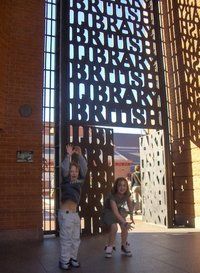
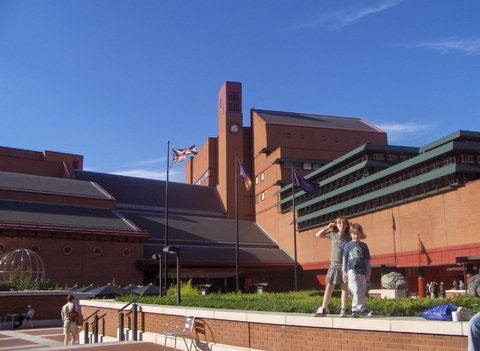
Eoghan and Eavan at the British Library, c 2006
Grow into your voice - Focus on equity and empathy
We have been pleased to work on the REALM project at OCLC, assisting libraries, archives and museums navigate pandemic issues. In a recent meeting, attendees were asked where they needed most help. These were the two top responses:
- How to support self-care and morale
- Centering diversity, inclusion, and equity during a crisis
This emphasis is not surprising, given the experiences we have seen in stretched and stressful work environments, but it is worth calling out. And although I do not work in a library, I am lucky at OCLC to be able to interact with many who do, across libraries of all types. The increased focus on staff morale and self-care has been especially noticeable as the pandemic proceeded and accumulated stresses become more apparent.
Although I am often associated with the digital, I am very drawn to library places and to the very practical as well as symbolic role good spaces play in community settings.
In fact, these experiences make me recognize that I tend to talk about 'the library' in my writing on libraries and their directions, rather than about the people who are doing the work or on the capacities needed to move in particular directions. I should be more thoughtful about this. There is always more to learn ...
The murder of George Floyd crystalized attention to deep structural issues of racism, as one instance of a pattern of violence against African Americans in the US. As a white person who had lived here for 20 years, I was still shocked to see a white woman in Central Park act knowingly in the context of a structural imbalance of power as she called the police. Or to listen to the African-American mayor of Atlanta open her remarks about rioting by saying that she had warned her son to stay at home, because despite her high office she could not protect him. Libraries and other organizations recognized a need to purposefully move past mere statements of equality, to recognize harm or omission and to begin to repair damaging and exclusive practices. (The Reckoning Initiative at the University Libraries, UNC Chapel Hill, represents a notable example of an initiative to scale learning, recognition and change across the organization.)
The pandemic has highlighted these racial inequalities. It has also underlined economic inequities, the digital divide, the importance of available social infrastructure, especially for those that critically rely on library spaces and extended services. Libraries have been asked to step up to additional roles and to reshape services.
So, there is now additional pressure on our organizations and the people who work in them, already stretched by developments over the last few years as they take on additional assignments or manage through budget changes. Libraries faced immediate issues around staffing shortages, reconceiving services for online or curbside delivery, managing through political or policy differences. Library workers have been asked to do work they are not prepared for, to deal with difficult patrons, or to take on additional roles. Organizational and hierarchical differences have been emphasized by the uneven need to be physically present at work or to deal with patrons. The cumulative effect of these pressures can be draining, and empathy can be difficult. In this context, a colleague drew my attention some time ago to the important work of Kaetrena Davis Kendrick on empathy and self-preservation in the workplace.
At the same time, I believe that the REALM responses point to a longer term sea-change in sensibilities and expectations. This may be unevenly manifested, but underlines the need for the library to recognize the importance of equity and empathy, in terms of both value created and values embraced. We know that libraries are social organizations supporting mental wellness, social cohesion, and personal and community development. Current experience has fore-grounded these roles.
Of course, equity and empathy can just be labels, verbal Febreze that masks underlying realities. They need to be supported and developed in real ways. I am trying to listen more, to ask more questions, to take active measures to understand different experiences and perspectives (of our colleagues and in communities served), to respect time thresholds between work and life, to actively extend the range of my reading and media consumption as well as who I follow on social media, to try and step aside when appropriate, or to promote the voice and contribution of colleagues. I need to pause to check bias.
Of course, equity and empathy can just be labels, verbal Febreze that masks underlying realities. They need to be supported and developed in real ways.
But this is not just an individual responsibility, and ramifies through institutional and social contexts. There is a responsibility for those of us in positions of authority to be open to uncomfortable feedback, to resist the performative or facadist, to recognize how privilege may prevent us from understanding or seeing issues, or from understanding how difficult it may be for somebody to speak up, and to create the space and momentum for change.
So, this is actually an extraordinary time to be entering the library profession. It is also a difficult time, as noted above. I believe that an important pandemic effect will be a reexamination of library identity and the emergence of a more holistic view of the library, across network and place. Libraries have had to think about how to deliver a fuller library service online. Defining the library in terms of expertise and services, rather than in terms of a building and collections is an ongoing challenge.
All of this makes it a time when new ideas and voices need to be heard. It is a time when it is important for those coming new to library work to bring their perspectives on value and values to that work.
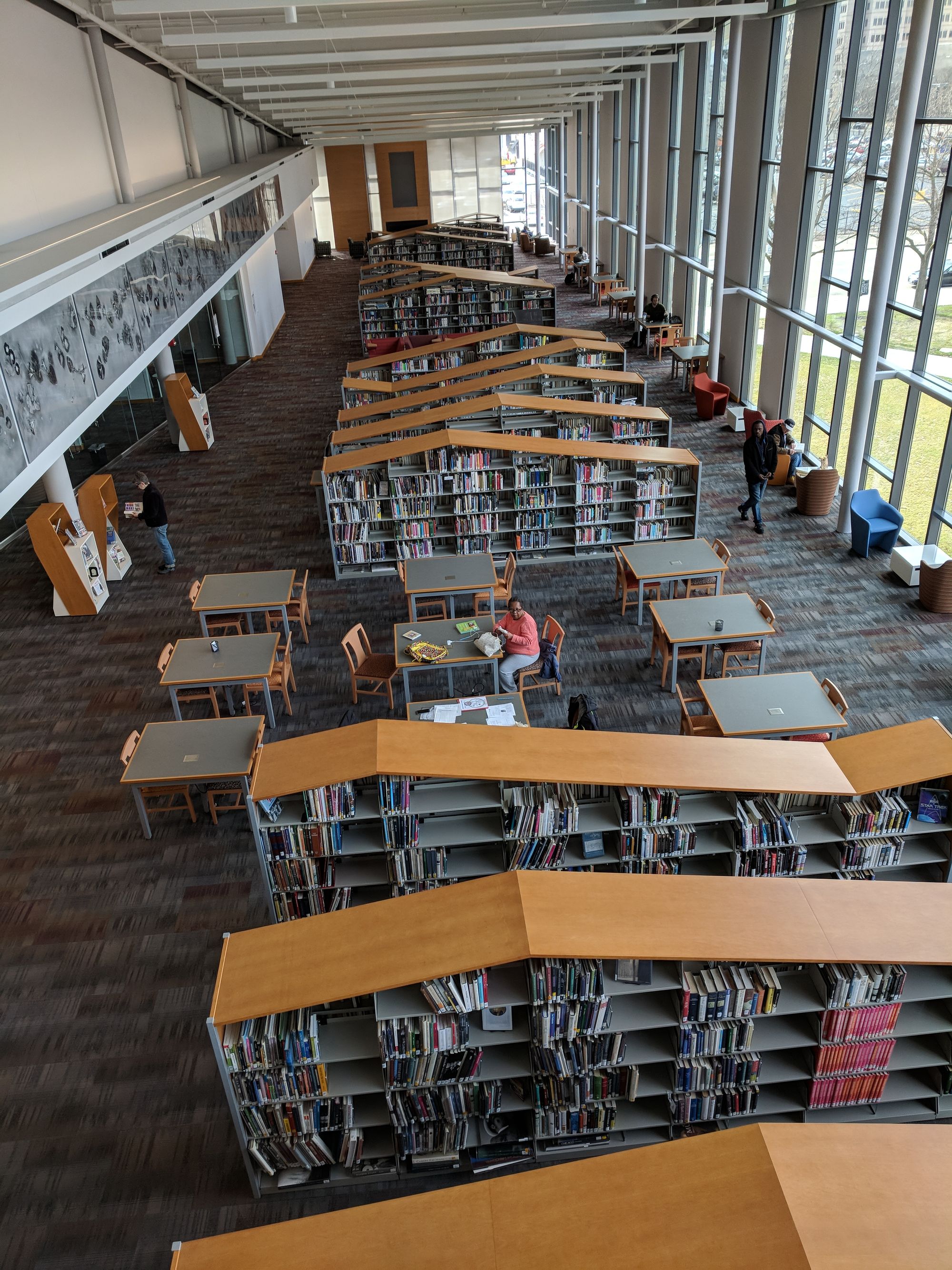
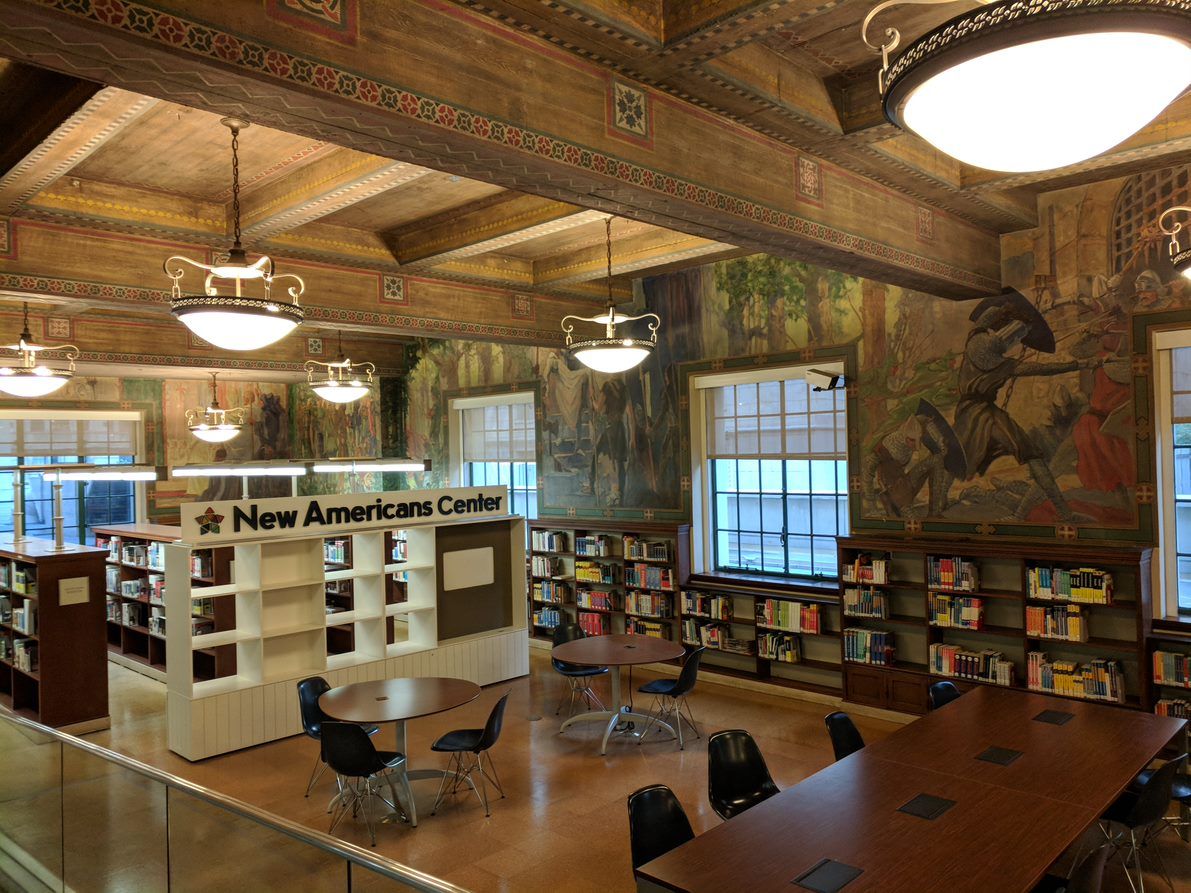
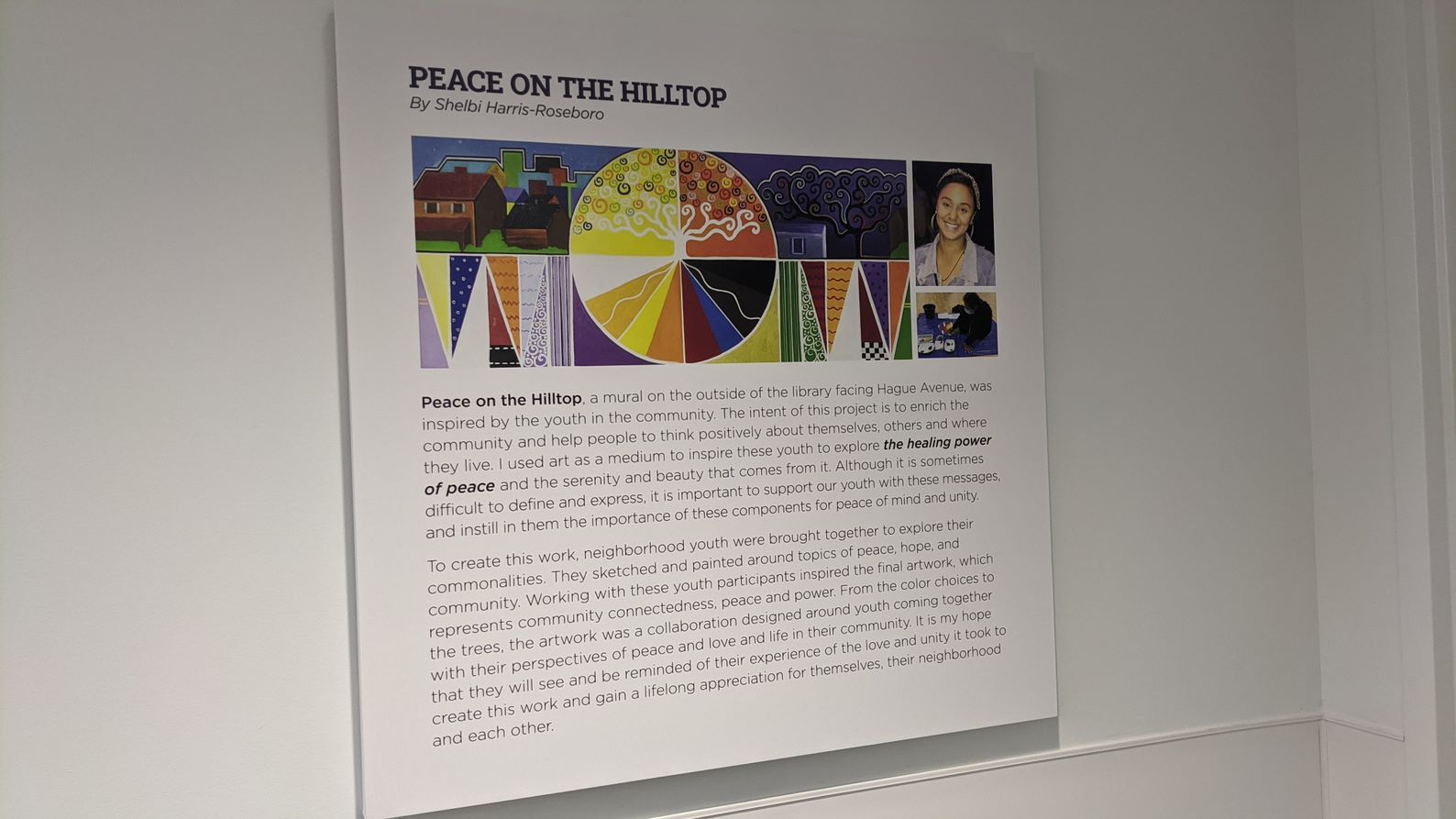

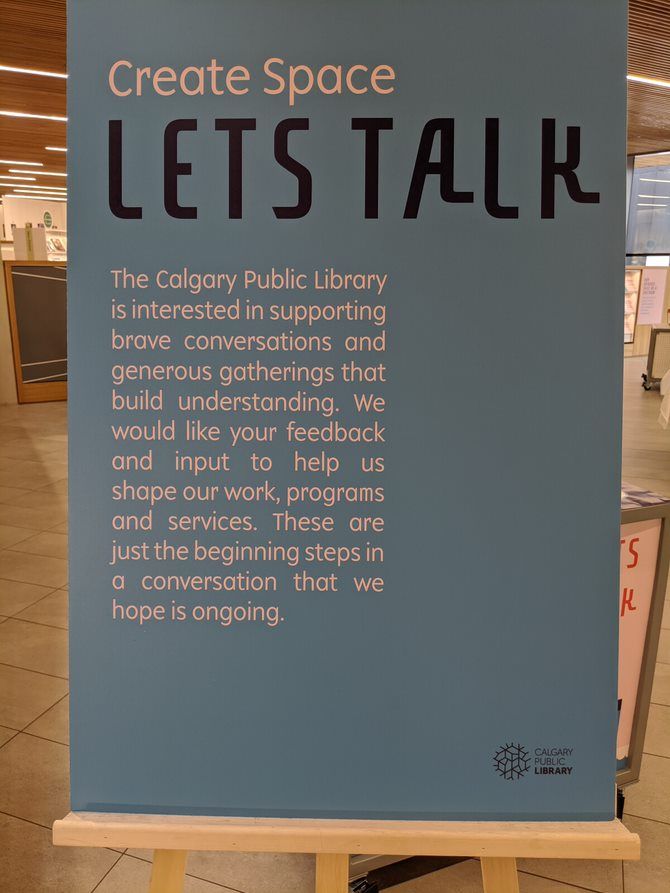

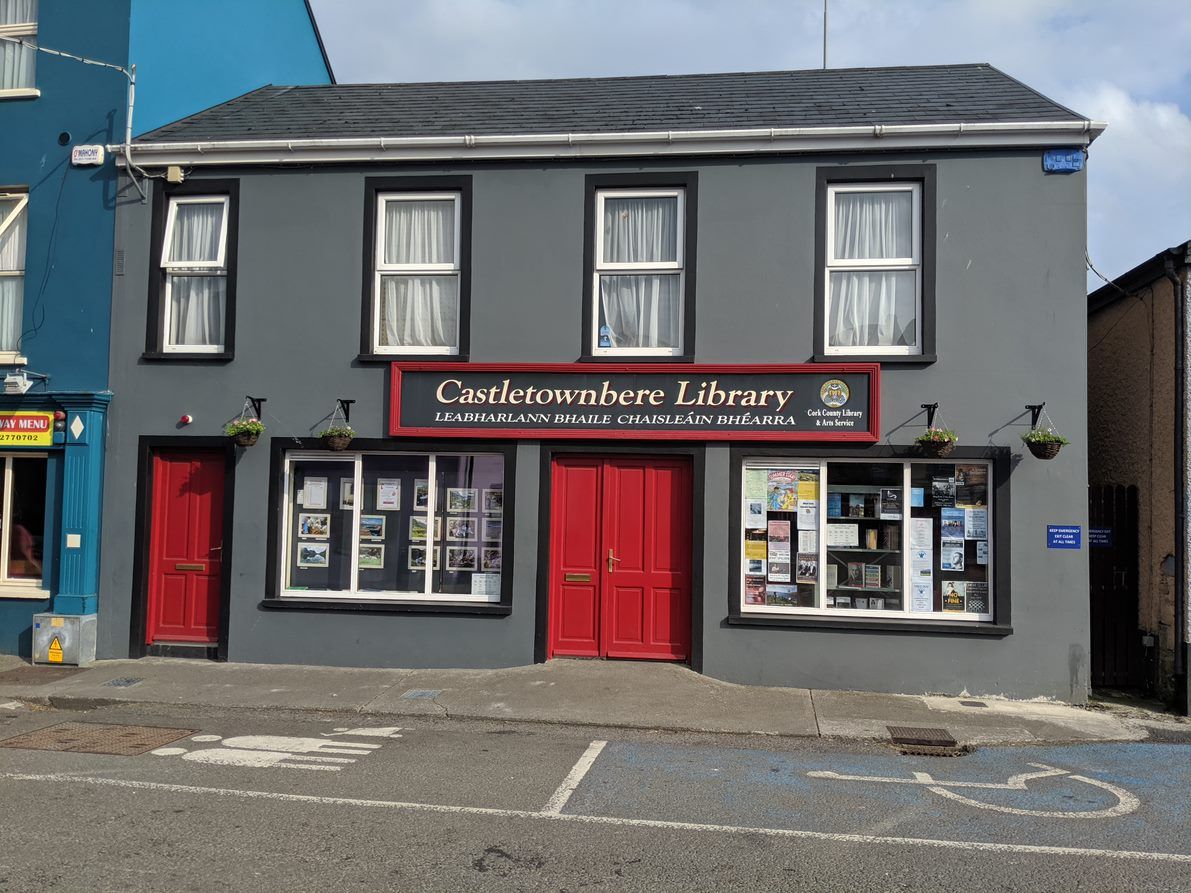
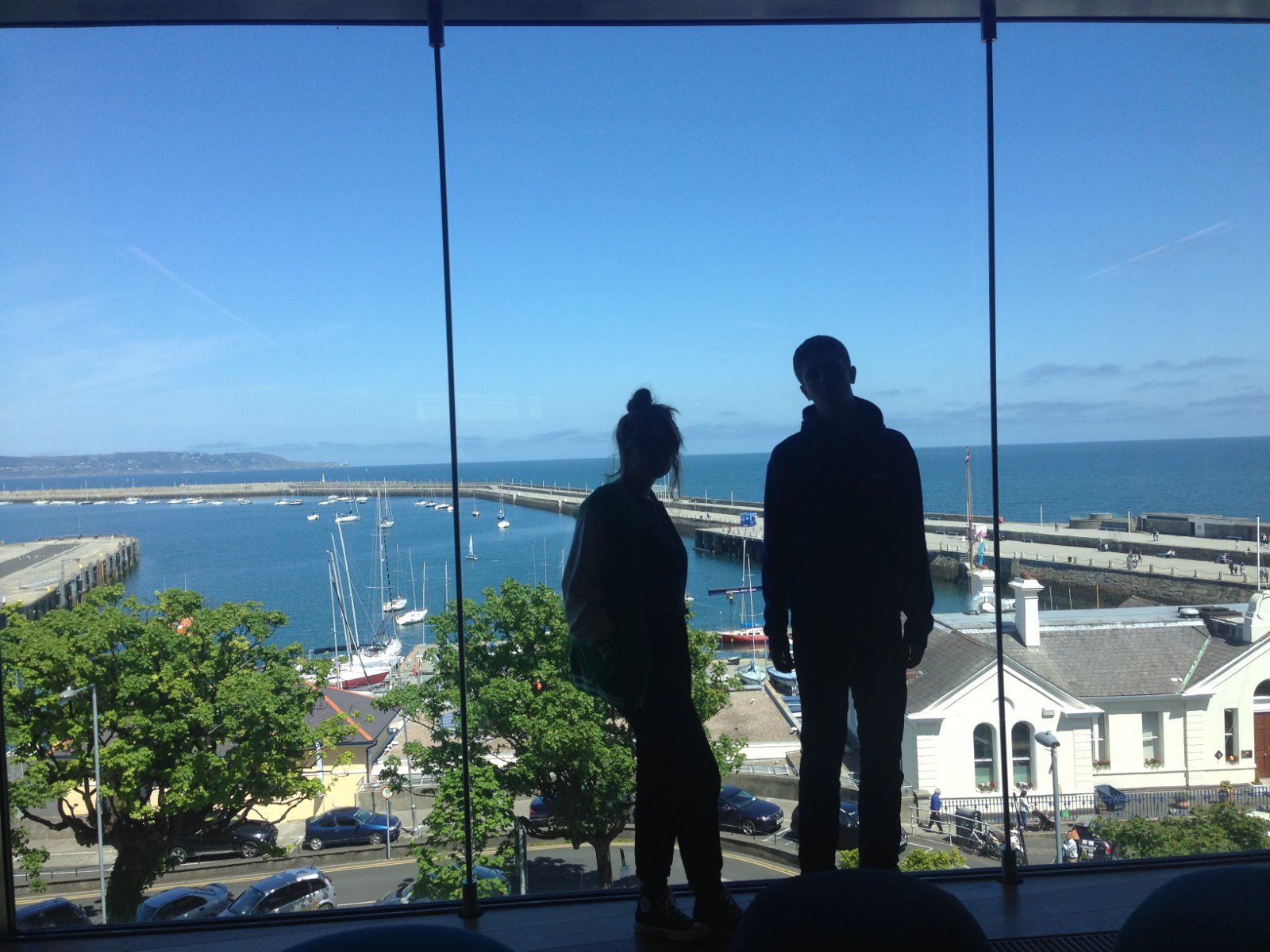

Dayton Metro Library; New Americans Center at Los Angeles Public Library; Explaining the mural at Hilltop branch, Columbus Metropolitan Libraries; UIUC; Calgary Central Library; Images on Case Western Reserve University library elevators; Castletownbere, Ireland; E&E at DLR Lexicon, Dun Laoghaire; Irish mobile library.
Reading and writing
It may sound glib, but it is good to read and write. It is important to read around our area, to think about social or cultural contexts. For example, my thinking about library technology has been influenced by the sociotechnical theory and research of Wanda Orlikowski, which a colleague introduced me to several years ago. It may be beneficial, for example, depending on one's focus, to read about the dynamics of higher education or about placemaking or urban planning.
Writing is useful as a way of working through your thoughts, as a way of prefabricating positions or arguments, as a way of becoming more fluent in a topic.
I have always combined my work responsibilities with my writing and speaking. My early focus was very much on the emerging apparatus of metadata, networking and technologies, flowing from my day to day work interests. However, over time there has been an evolution from the specialist to the more social or organizational, which is maybe not surprising in a typical career trajectory? It also reflects of course the changing reality of digital and the network during these years, as they have become progressively more entangled with our behaviors and social organization.
Writing is useful as a way of working through your thoughts, as a way of prefabricating positions or arguments, as a way of becoming more fluent in a topic.
I write to be read, so I try to publish in open access resources, or to make an open access copy available. As a profession we should be careful about what and how we publish. Here is an annotated overview of my writing and writing interests, including a note about influences.

Bring your interests to work
Our working lives are inevitably variably interesting. It is good to have special interests, where we have some expertise or enjoyment. Sometimes, if we are lucky, this may support a special contribution in a work context (maybe a language?), but will certainly more generally provide sustenance.
A modest example. In library school, the course I enjoyed most (and did best in) was Children's Literature. I did not anticipate working in this area: I chose to do this given a general literary interest, but I was also influenced by the fact that my father was a teacher and had written a series of readers when we were growing up. We were lucky in an inspirational lecturer on the course, Pat Donlon, later the National Librarian of Ireland. I remember the pleasure of writing about the Ahlbergs, looking at how Peepo! works in particular. And later as our own children were growing up, I remember the delight of discovering, say, the lovely Katie Morag books by Mairi Hedderwick, set on a beautifully illustrated Scottish island, or the poignant Tree of Cranes by Japanese-American writer, Allen Say, more significant for us given its touching treatment of cultural negotiation.
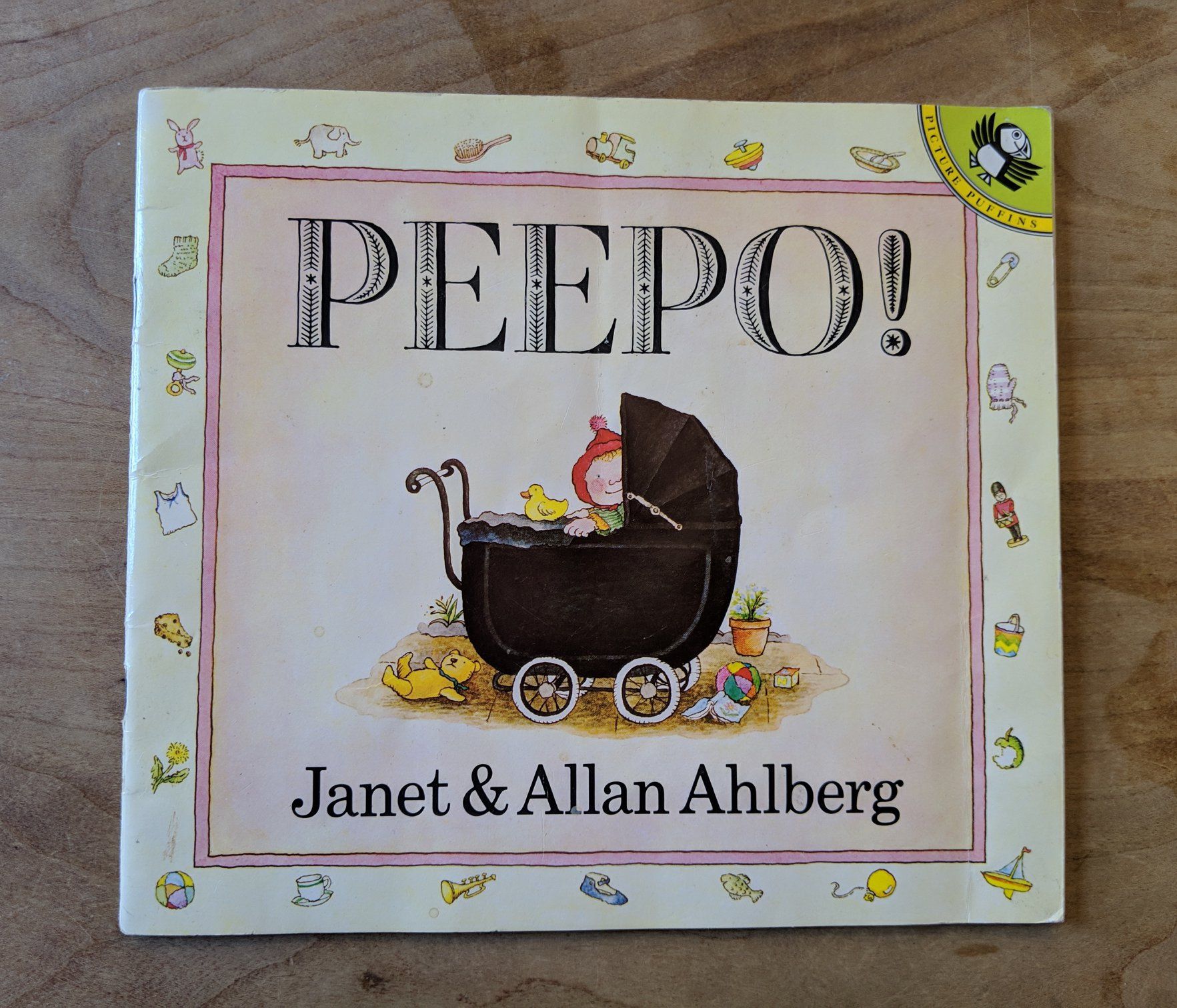
For me, the international dimension of library work is another example. Given our background I have always been interested in the international and comparative element of libraries. I have been lucky in my positions to have been able to travel. And I did a lot of early work in various capacities with the European Commission when it had a libraries program. OCLC serves libraries around the world, and I welcome the opportunities that provides to visit and engage. I have been pleased to work in recent years with our Global Council, an engaged international group. Of course, this is not possible for everybody, but that international dimension is particularly enriching, in terms of exploring similarity and difference across different cultures, social and political contexts, and professional traditions.
And finally, there are many paths
My family doesn't always like it when I am the driver ... I favor the scenic route, the diversion to see a new town or feature of interest, the long way home.
People take different views of their careers or expectations. Some have goals, some are more opportunistic. My own experiences have certainly not followed a straight line. While my career has some unity of emphasis, I have also made major lateral moves in unanticipated ways, between jobs, between countries, and between interests. So take chances and understand that there are many paths!
Pictures: All pictures by the author. The feature picture includes windows from seeral libraries. Clockwise from upper left: DLR Lexicon, Dun Laoghaire (created by children, after Matisse); Burns Library, Boston College (by Richard King, an associate of important Irish artist, Harry Clarke); National Library of Australia (by Leonard French); Rathmines Public Library, Dublin (by William Morris).
Note: This entry was first drafted before the announcement about my latest move, as I transition into the next chapter ...
Acknowledgements: I am grateful to Ann Lennon for advice about an earlier draft, as well as to Eavan and Eoghan Dempsey. And also to my OCLC colleagues Pam Bailey, Kathleen Gesinger, Andy Havens, Erica Melko, Bob Murphy, Sharon Streams and Steph Waite. Thanks too to Aedín Ní Bhróithe Clements, Earl B. Givens Jr., David Lankes, Cathal McCauley, James Neal, Margaret Stokes and John Wilkin. Of course, all opinions (and memories) are my own.
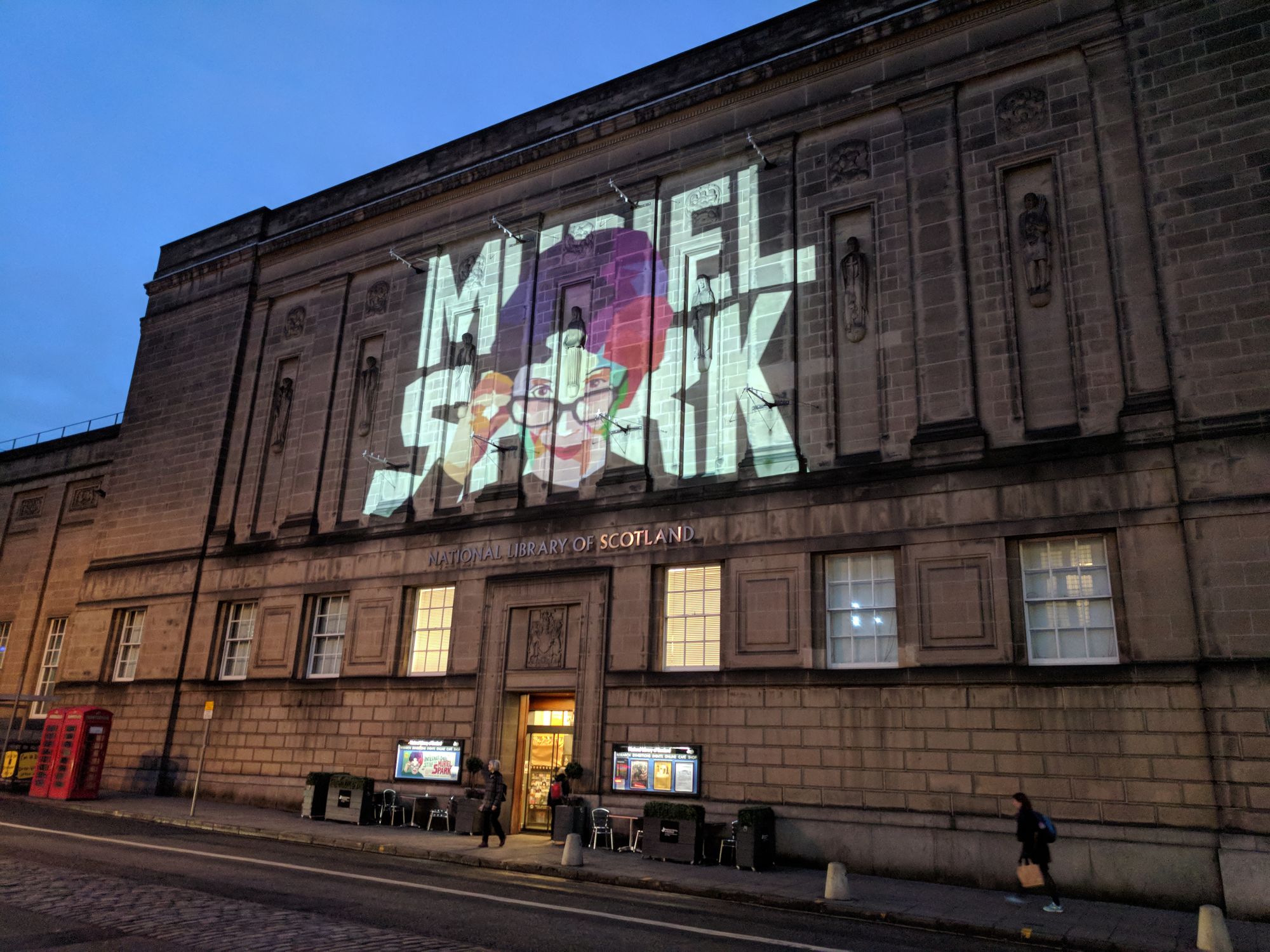
Updates: 4/10/22: Small editorial update. Comment about accents added. 1/26/23: pull quotes added. 2/24/2024: Turned text to headings, generated TOC. 1/2/24: Caption on feature picture moved to note.




